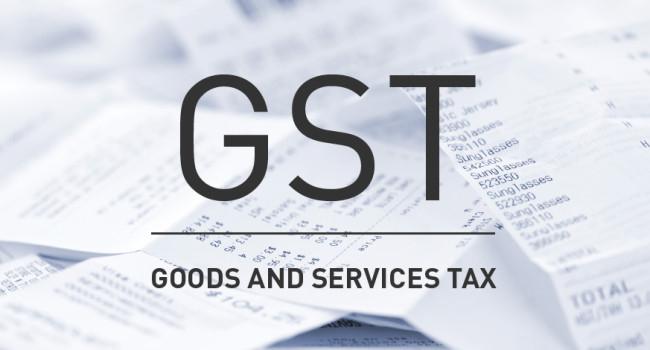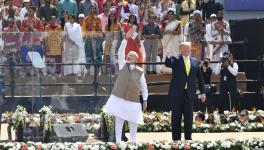A Note on the Goods and Services Tax

The Indian constitution had erected a financial federal structure as a complement to the political federal structure. The constitution had been aware that if the states were reduced to the status of mendicants approaching the centre for resources, then that ipso facto would entail a subversion of the federal polity. Hence, it specified certain particular taxes to be levied by the states, as distinct from others that were left to the centre, and the institution of a Finance Commission once every five years, the necessity for which arose from the fact that the taxes left to the centre yielded more than the expenditure responsibilities of the centre, while the converse was true of the states.
The centre, however, adopted over the years various means, which we need not go into here, to ensure that the states remained starved of resources and had to depend upon its goodwill, ie, that they were indeed, as far as possible, reduced to a mendicant status. It ensured for instance that the Finance Commission’s jurisdiction did not cover the entire kitty of resources that came to it (a substantial chunk of which continued to be transferred to the states through central ministries and hence at the centre’s whim), and that the composition as well as the terms of reference of the Finance Commission were unilaterally decided by itself. This amounted to a violation of the spirit of the constitution, against which voices continued to be raised.
TAKING AWAY STATES’ POWERS
The Goods and Services Tax regime sought to be introduced from July 1, 2017, takes this assault to an unprecedented height. It amounts to a formal abridgement of the constitutional rights of the states. This is clear, obvious, indisputable, and not even denied by anybody (though justified in the name of “development”). By substituting a GST for the Sales Tax which the constitution had explicitly assigned to the states, and which was the main source of states’ revenue (approximately 80 per cent), and by providing that GST rates are to be decided only at the GST council where every state is just one member, together with the centre, and therefore quite powerless to alter the rates it can charge, it is clearly taking away states’ powers.
Whether, for how long, and to what extent the centre would compensate the states for this loss of their taxing powers, and whether the state governments as they are currently constituted are willing to part with these powers in return for the assurance that their revenues would be protected for a while, are completely beside the point. The question of states’ rights goes beyond what state governments at any particular point of time are willing or unwilling to do. The question relates to the basic structure of the constitution. Just as one cannot declare the country a “Hindu Rashtra”, even if the centre and all the state governments at a particular point of time unanimously agree that this should be done (for that would violate the basic structure of the constitution), likewise one cannot take away the states’ powers even if the centre and all state governments at a particular point of time unanimously agree to institute a regime that does so (for such an arrangement too would violate the basic structure of the constitution).
The claim that a GST would contribute much to GDP growth is based on entirely spurious econometric exercises. The talk that GDP growth would go up by 2 per cent or 3 per cent is derived from theoretical models, all of which make assumptions that have no basis in facts. They all assume for instance that there are no demand constraints upon the economy, that capitalists’ investment decisions are not based on considerations relating to the expected growth of the market, and so on. For instance, if because of the world capitalist crisis, India’s growth rate slows down, then capitalists’ investment would fall, and no amount of tax reform would boost their “animal spirits” to make them invest more. Tax reforms in short would not make an iota of difference to investment behavior of capitalists which is governed primarily by the expected growth of the market, though capitalists argue otherwise in order to push for tax reforms which are advantageous for them, as the GST would be. The gains of such reforms are simply pocketed by them, without stimulating any larger investment and growth.
Besides, the idea of a “development” that is defined separately from constitutional values, entirely in GDP terms, must be rejected. Just as the argument that preventing strikes by workers, and protests by the public in general, would raise investment and growth and should therefore be instituted, needs to be rejected, likewise the argument that GST should be adopted on the grounds that it would promote higher growth also needs to be rejected; this is because, quite apart from the fact that such claims of higher growth are spurious, the notion of “development” must include democracy as well. And an abridgement of states’ rights is as undemocratic, as conducive towards an authoritarian centralised polity, as an abridgement of trade union rights or civil rights.
THE CASE OF THE UNITED STATES
The case of the United States is instructive in this regard. The argument is often advanced that a uniform GST across states, even though there may be varying rates (four being mooted at present, on commodities), is necessary for creating a national market. Interestingly the US does not have any such uniform rate, but a plethora of them across states and commodities. It would be ironic to claim that the world’s most powerful capitalist country does not have a unified market! The reason why the US does not have a uniform rate like what the GST entails is because it values federalism greatly. (It is a symptom of how seriously the US takes federalism that in the senate every state, large or small, has the same number of representatives, namely two. Thus a large state like New York or California has two senators each, the same as a tiny state like Delaware or Rhode Island). Even the most powerful capitalist country of the world in other words is willing to place certain constitutional values like federalism, upon which it is founded, above capitalists’ preferences. There is no reason why India should not do the same.
The introduction of the Goods and Services Tax is both against the basic structure of the constitution and poses a serious threat to the unity of the country, though paradoxically it is being justified on the grounds that it would unify the country in terms of its fiscal regime. It abridges the rights of states and thereby paves the way for an authoritarian centralised polity which is a dangerous development. Since the states will have no leeway in the matter of raising resources, they would perforce have to turn to the centre to bail them out. This would provide the centre with the perfect opportunity to play favourites and to arm-twist state governments. It will then have an opportunity to drop the hint: “Support our presidential candidate and we can be accommodative towards you”, or “Support the Hinduisation of our Rashtra and we shall be accommodative towards you”; and so on. In short the struggle for secularism and the struggle for democracy are inseparably linked with the struggle for the defence of our federal polity and hence for financial federalism, which the GST threatens to undermine.
This fact of centralisation is already arousing massive opposition, especially in the state of Jammu and Kashmir. The argument is being advanced, with justification, that the GST amounts to a further abrogation of the Article 370 of the constitution concerning the special status of that state. And it is a symptom of the current lack of concern of the Indian ruling classes and the corporate-controlled media with the popular mood of animosity in that state that, notwithstanding this opposition, the determination to press ahead with the GST by a specified deadline has not relaxed an iota. Indeed there is scarcely any discussion in New Delhi of the implications of the GST for Article 370.
Had the GST arrangement simply provided for a minimum GST rate above which the states were free to tax as they liked, matters might have been different. That would not have taken away the powers of states. But by making states subservient to a GST Council in the matter of fixing tax rates, it attacks their rights which is impermissible under our constitution.
Disclaimer: The views expressed here are the author's personal views, and do not necessarily represent the views of Newsclick.
Get the latest reports & analysis with people's perspective on Protests, movements & deep analytical videos, discussions of the current affairs in your Telegram app. Subscribe to NewsClick's Telegram channel & get Real-Time updates on stories, as they get published on our website.
























